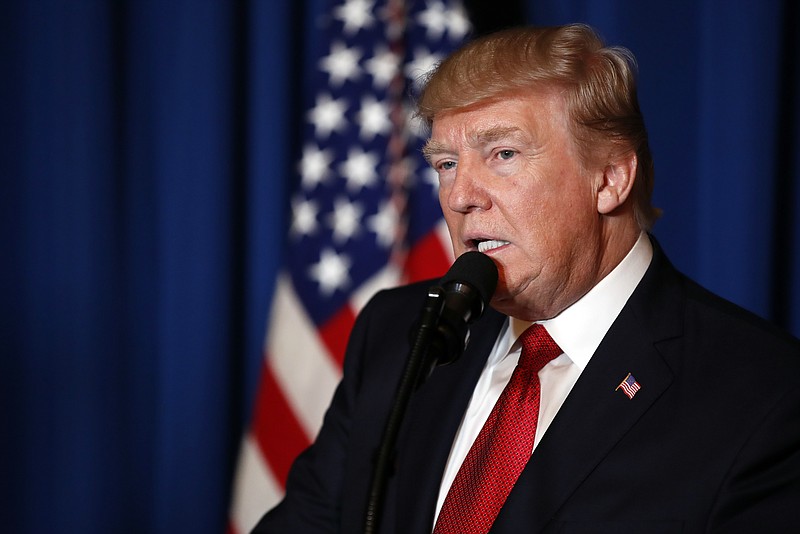KANSAS CITY, Mo. - Even for a president who advertised his coldblooded pragmatism, the moral dimensions of leadership find a way of penetrating the Oval Office. In the case of Donald Trump, the emotional distance seems to have been shattered by simple, indelible images of suffering children in Idlib, Syria.
"When you kill innocent children, innocent babies - babies! - little babies, that crosses many, many lines. Beyond a red line, many, many lines," Trump said Wednesday, after pictures surfaced of lifeless infants choked to death by poison gas.
The recognition: The Syria slaughter "is now my responsibility." And the admission: "I do change."
American interventionism is our best and worst national trait. Historically, until recent years, America was a reluctant warrior, fearful of foreign entanglement. Thursday marked the 100th anniversary of America's entry into World War I, a war conflict that still drips with senseless, dutiful killing. The young men of Europe had been slaughtering each other since 1914, but on the other side of the Atlantic it was "America First" until Congress backed Woodrow Wilson and declared war on April 6, 1917.
Trump's wariness on Syria had been like President Obama's: He said repeatedly, over the last six years and during the campaign, that he opposed more headlong American military actions in quests that might be morally urgent but strategically fuzzy. Republican hawks such as Sens. John McCain and Lindsey Graham had blasted Obama's reluctance to intervene, but not Trump.
Given that Trump's view of Syria was so similar to Obama's, his attempt to blame the latest chemical attack there on his predecessor's alleged weakness was especially dubious. It displayed his embattled, defensive self-image: He is a victim of someone else's bad decisions.
Why did Assad use nerve gas in Idlib? It's impossible to know. Maybe it was a signal to an increasingly aggressive Israel that he still had chemical weapons; or maybe it was a warning to Russia that he wasn't a pawn to be traded in a grand bargain with Trump. Most likely, it was a reaction to the free hand he was seemingly given when Secretary of State Rex Tillerson said a few days earlier during a visit to Turkey that Assad's future "will be decided by the Syrian people" - meaning that America no longer demanded his departure.
The irony is that Trump faces the same bad military options in western Syria that Obama did. U.S. military commanders have focused on the battle against the Islamic State in eastern Syria. The Pentagon has a plan for a relatively rapid conquest of Raqqah, the caliphate of the Islamic State, by a force led by Syrian Kurdish fighters. U.S. troops will augment this assault with artillery, helicopter gunships, and forward-deployed advisers. It's a pragmatic plan for ending the ISIS terror threat quickly, even at the risk of offending Turkey and leaving Assad and the political muddle in Damascus. This plan had all the pieces except a final White House stamp of approval.
Then came those pictures of the Syrian children. Now, by his own account, Trump has to do more. This appears to be one of those unforeseen tipping points on which decisions of war and peace so often rest: the sinking of the Lusitania in 1915, the "Zimmermann telegram" of 1917, Pearl Harbor in 1941, the Gulf of Tonkin attack in 1964, the Iraqi WMD delusion in 2003.
The World War I centennial is especially haunting as we think about the choices Trump faces in Syria. A century later, that conflict is still unfathomable.
Trump might study the example of Harry Truman, another president who came to office radically unprepared for the global responsibilities he faced. Like so many people caught up in war, he didn't know what he could do until he was tested.
Washington Post Writers Group
